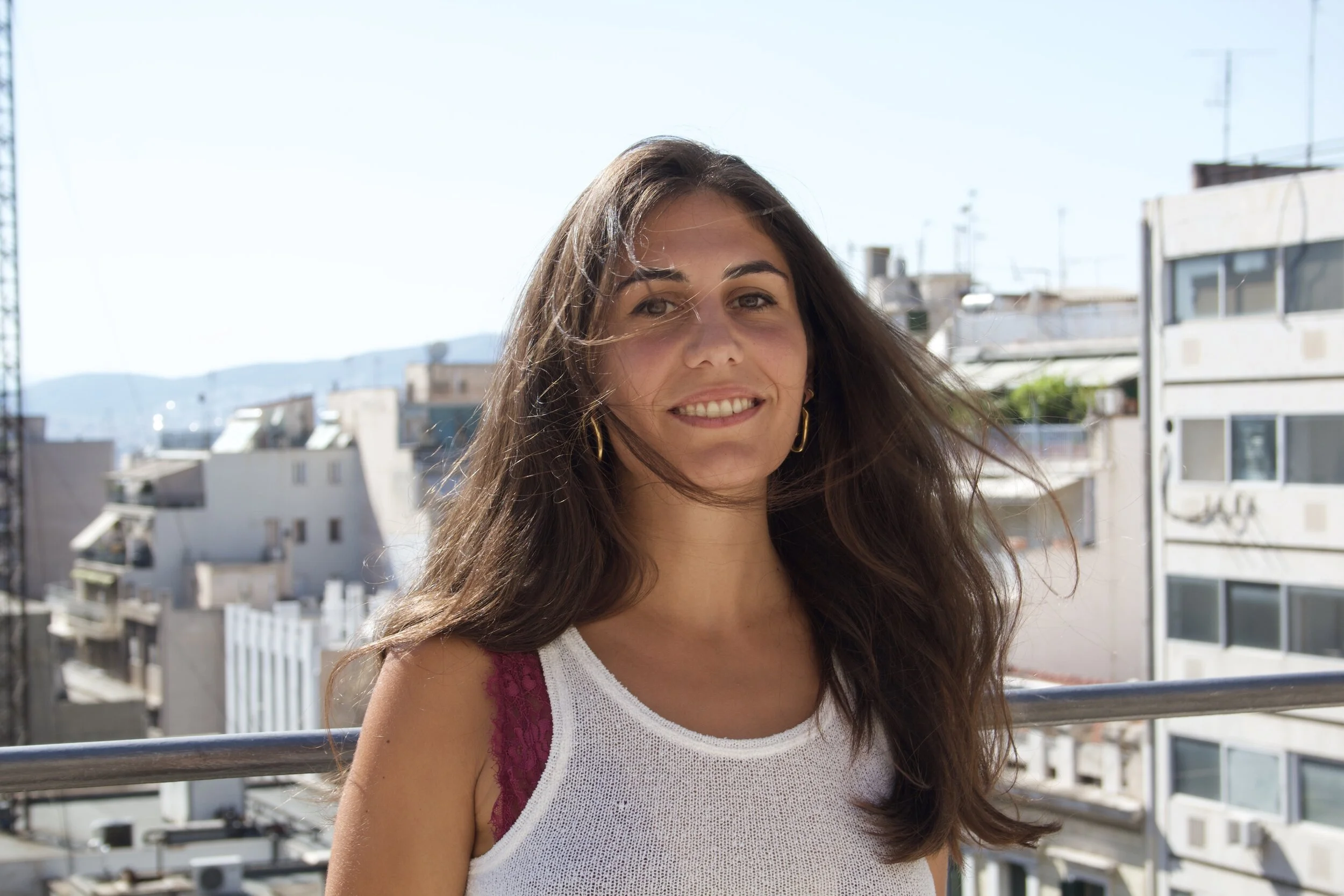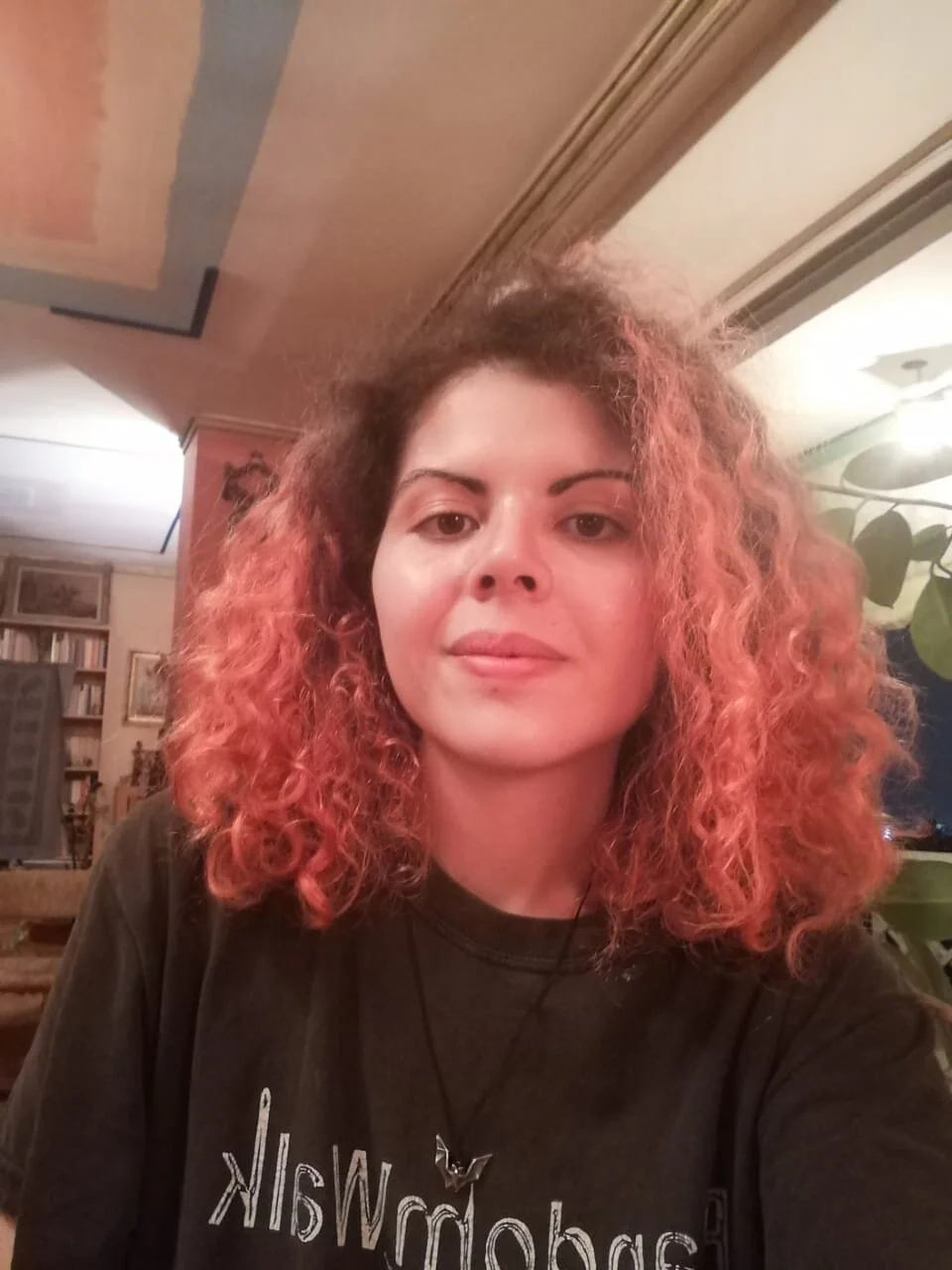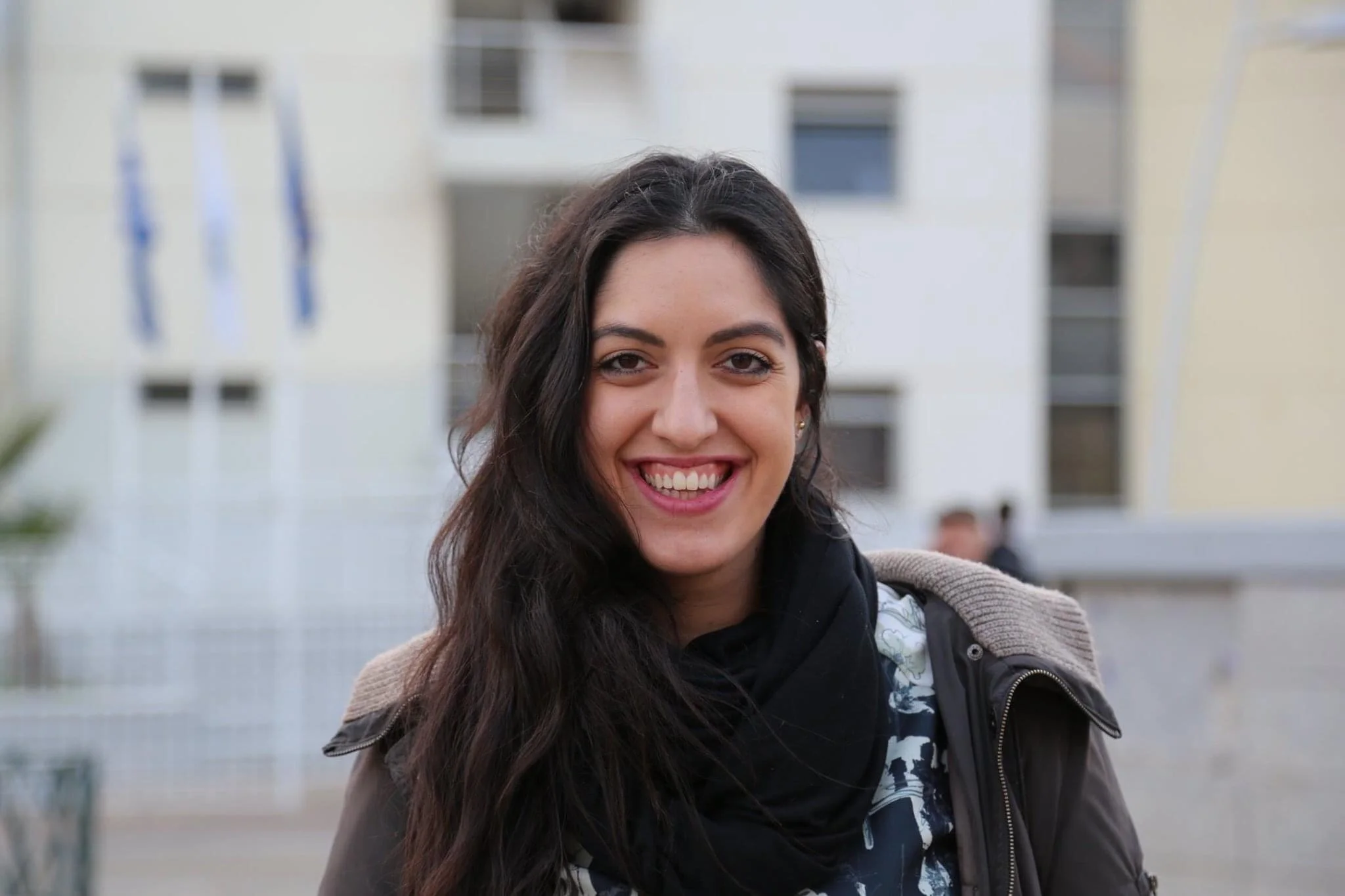The children of migrants who choose to move back to their parents’ country
When Alexandros Kottis decided to move from his home city of Paris to Greece, where his father is from, he soon discovered he wasn’t the only one making the journey
By Alexandros Kottis
Alexandra Zavvos moved from Brussels to Athens
A puzzled look. That was my father’s reaction when I told him I was moving to Greece. Although he had always ensured me and my siblings had a strong relationship with his home country, he definitely wasn’t expecting my decision. He arrived in France to study aged 18 and never returned to Greece except for holidays. Why would someone leave the beauty and opportunities of Paris for the dirt and decay of Athens, he wondered?
I had to answer this question a few times when I arrived in Athens in February 2018. I hadn’t been interested in living there in my early and mid 20s, but as I got closer to 30 I felt the need to “get back to my roots”. After growing up in France and then living in Chile and Uruguay, I felt it was time to discover more about my second country. I wanted to dig further; to go beyond the summer moments that I have always enjoyed. And as a journalist, it seemed a good way to combine personal growth with my professional goals.
While 500,000 young Greeks have left the country over the last decade due to the country’s economic crisis, I’m doing the opposite. And once I arrived, I found many other half-Greeks from around Europe were on the same journey.
“After growing up in France and then living in Chile and Uruguay, I felt it was time to discover more about my second country.”
“I arrived in the summer, after finishing my studies, in a period of my life when I was feeling depressed and unsure what I wanted in life,” says Alexandra Zavvos, who is Belgian-Greek. “I hadn’t planned anything, I just needed to decompress and the Greek summer seemed perfect.” By the end of summer 2013, the now-30-year-old decided to extend her time by doing a six-month internship. Seven years later she’s still here, working for a NGO.
In Athens, Alexandra found “a light, an energy and a vitality” that made her feel better – a particular atmosphere which she says she struggles to describe. Astra Menasse tells a similar story. This Italian-Greek chef moved to Greece in 2016 because “it got to a point where summer holidays were not enough. I really needed to know more about the second half of me.”
“I was searching for my identity and I found it in Greece,” continues Astra, who took Greek language lessons in order to become more integrated. “My relationships seem much easier here. Greece has changed the way I interact with people and how I deal with my problems. I’ve found peace of mind here.”
Astra Menasse is half Greek, half Italian
But after initially feeling only enthusiasm for their new lives, both Alexandra and Astra say they have now become more aware of the negative sides of Greek society.
Astra says she is “angry towards Greece because there are a lot of things that don’t work the way they should here. But if I feel angry, it’s because I love this country so much. And I realise how superficial my view of Greece was before.”
“At the beginning everything is wonderful and charming, even the bad parts,” Alexandra adds. “But over time, you get used to the good things and start focusing on the problems, such as the lack of organisation and civic-minded attitudes.”
Living here, Alexandra now considers herself more Greek than she ever did before. But she also recognises the things that distinguish her from many Greeks: namely, a conservative approach towards the role of women and an overbearing approach to family.
“It got to a point where summer holidays were not enough. I really needed to know more about the second half of me.”
Since I arrived, I have realised how different Greece is to other European countries in many ways, and how Greek people don’t consider themselves one hundred percent European. They say they’re going “to Europe” when traveling to another country in the same continent. Surrounded by the sea, and stuck between clearly defined geographical regions, Greece seems lost in multiple identities. Is it Mediterranean? Balkan? Perhaps it’s closer culturally to the Middle East? Nobody really seems to know, and in reality it’s probably a bit of everything.
This might be one of the reasons why so many foreigners seem to love Athens with a passion. I’ve met a lot of people who’ve moved to the Greek capital in the last few years, as if they were searching for the most exotic and authentic part of the continent. Athens has become a hub for “cool” people – entrepreneurs, artists, writers – all searching for a new underground city untouched by the accidental homogenisation on display in many European capitals.
Christian Grek-Fritzner is a 30-year-old graphic designer from Norway, whose maternal grandfather is Greek. He moved to Athens in 2014 and never left. “ You’re surrounded by art and history here, and it definitely inspires me,” he says. “I love the way of life and the mentality of people here.” Despite the years of crisis “people are trying to enjoy life, even without much money. Norwegians are obsessed with money, but Greeks are focused on the good life.”
Christian Grek-Fritzner moved from Norway to Athens in 2014
Maybe many of us view Greece’s last decade of economic crisis with a type of thoughtlessness, as we’re cushioned from its direct impact. Arriving in the country with a different background gives us more opportunities. We often only mix with international people in our day-to-day lives, or well-off Greeks.
But despite the influx of foreigners, multiculturalism as we know it in Paris or other continental cities doesn’t really exist here. This is slowly changing, but racism remains strong. I’ve also noticed a kind of weird pride in Greek society, based on past glories that don’t really exist any more. It’s as if my compatriots are always looking behind them instead of ahead.
“Many Greeks accuse each other of a decline into ‘Zorbas’ [a type of over-confidence],” says Nicole Pagonis, a 30-year-old Greek-American. “But many young people in Greece today resist the self-pity that denies them any agency or the power to determine their own futures. And this gives me a lot of hope.”
Nicole Pagonis splits her time between Greece and the US
This desire to reconnect with Greece is not exclusive to Europeans. Greek emmigration was a big worldwide phenomenon throughout the 20th century, and many settled in Australia and North America. After working as a producer in New York for many years, Nicole started her own documentary project split between her two countries, which she says has been a good way of combining both her cultures and identities.
Being bi-national gives you the privilege of being able to choose which country you want to be based in, while always having the possibility of returning back. But there are some harder aspects too.
“When you’re ‘half-half’ [as they call it in Greece], you’re never 100% at home,” muses Alexandra. “Whether I’m in Athens or in Brussels, I will always be missing one place. I will always be a local and a foreigner at the same time.”
“It always feels there’s a part of you that others around you will never understand,” adds Nicole. “There’s always an inner conflict for me over where my true ‘place’ is. But right now, I am here in Greece, and as for tomorrow – who knows?”




